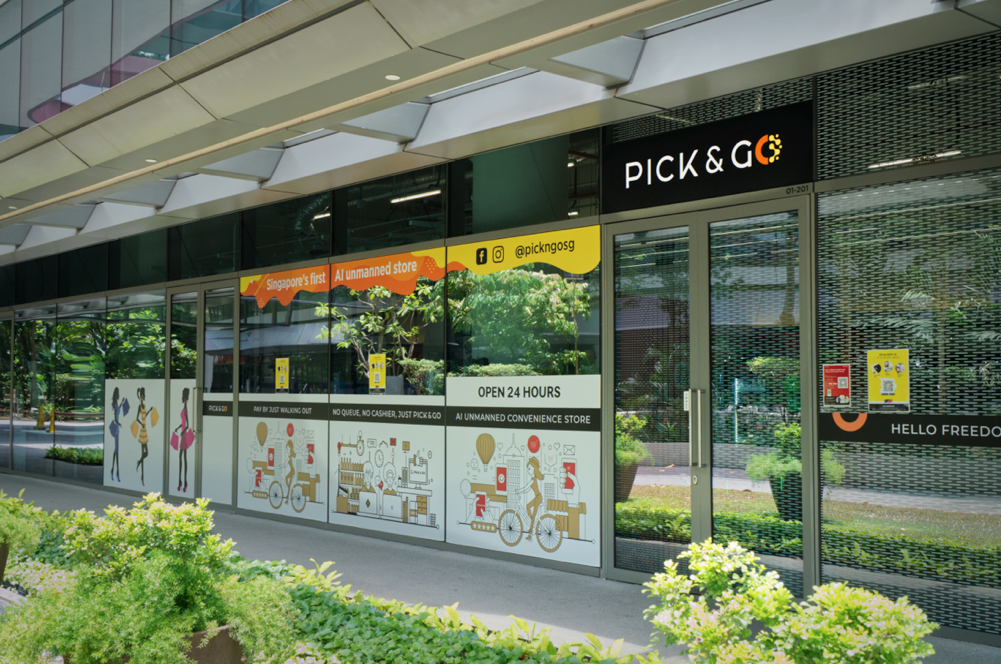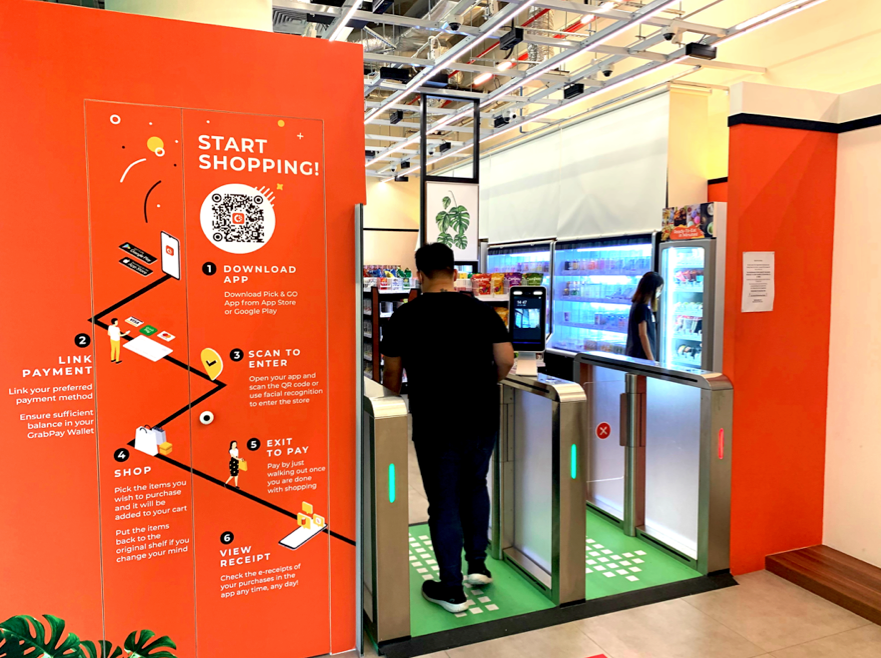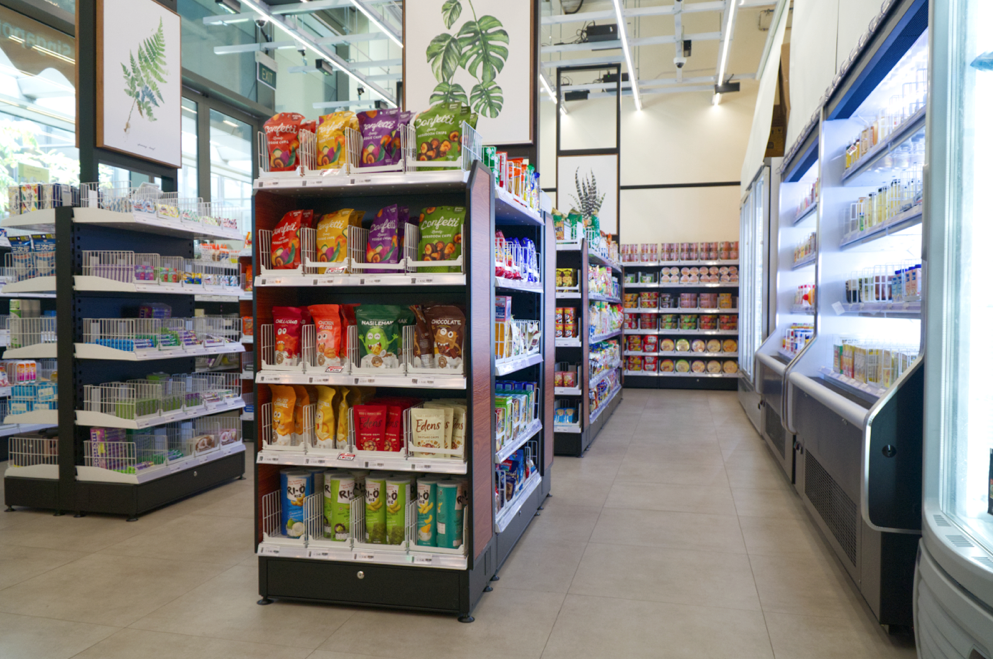To state the obvious — e-commerce has changed the way we shop. With the proliferation of various platforms, websites, and mobile apps, everything is literally at our fingertips. However, convenience stores, particularly in neighborhoods and commercial spaces, still have an important role to play in society, especially when purchasing daily necessities on the go.
While convenient, as the name suggests, Alex Ng, founder of Pick & GO, Singapore's first AI unmanned convenience store, found a way to take the convenience store concept to the next level, allowing shoppers to avoid queues and crowding at any time. Simply walk in, grab what you need, and walk out to complete the payment within seconds.
Sharing his own experience with PORTFOLIO, Ng says, "Due to the fast-paced way of life in Singapore, I prefer to have more freedom in spending quality time with family and friends, rather than queueing and waiting. There are many instances where I have back-to-back meetings and I simply want to buy a drink or a quick bite, but the queue is just too long, particularly during peak hours. When I chanced upon the technology where I can simply pay for purchases by walking out of the store, it struck me that I will be solving a pain point that many urban dwellers are able to relate to. Due to the nature of my work, I had the opportunity to travel frequently, which allowed me to experience various types of unmanned store technologies in China, ranging from vending machines and RFID technology to AI technology."
(Related: Alex Ng talks about his Lexus experience and why details make all the difference)
The exposure to such innovations got Ng thinking about the possibility of localizing and implementing the technology in Singapore, which would therefore address the hassle of waiting and queueing. And with COVID-19 playing a very big role in our lives in the foreseeable future, this concept allows for customers to enjoy a contactless shopping experience as well.
In late 2019, Pick & GO became a reality. "As the first unmanned store in Singapore at that time, cashless payment was still gaining traction. To ensure that the concept was easily accepted by customers, we decided on a location with a community that has a high acceptance rate of new technologies. This led us to open our pilot store at the Singapore University of Technology & Design (SUTD). We are very fortunate that this pilot store received support from Enterprise Singapore, as well as the campus, which provided us the space to test out this new-to-market concept," reveals Ng.
Since opening, Pick & GO has launched a second store at Lakepoint Condominium in Jurong. "We tend to look for locations with a community, as recurring customers will benefit the most and enjoy the convenience of walking into the store and pay by just walking out. The response to our SUTD branch was quite successful, judging by the feedback from students and working adults in the area. The second location is within a condominium with over 300 units. What's more, management even agreed to allow public access to our store. However, I've learned an important lesson with the second outlet: The low footfall and minimal utilization after usual business hours does not maximize the technology's full potential. Going forward, we will focus on locations with good public visibility and accessibility, and with a community that appreciates 24/7 store operations."
Pre-COVID, Ng tells us that majority of their customers are younger; students and professionals from surrounding offices. "Our customers generally have tight schedules at school and at work, meaning they don't have much time to waste," Ng adds. Today, Pick & GO sees a higher uptake from older customers as well, which Ng credits to changes within society, where the use of technology is more widely accepted.
With regards to the offerings at Pick & GO, Ng says, "We typically cater our products to the demographics of the community. We carry mainly daily necessities like food and drink. However, we believe that there are many brilliant products by local brands and entrepreneurs that don't necessarily have an offline retail presence. As such, we embarked on an initiative to support local, where we allocate at least 30% of space to local brands we've partnered with — with no on boarding fees. In addition, we prefer to work with local brands that fulfill at least one of these three causes: Environmental sustainability, healthy food and beverages, and wellness and lifestyle."
With almost two years in the market, Ng admits that there is still a lot of work to be done. "We recently did a rebranding and we have evolved into a Digital Lifestyle Hub, where we partner with local expertise so that customers can engage their five senses. This new concept will be launched at My Village in NUS this month. Eventually, we plan to expand beyond institutes of higher learning, moving to both the CBD and heartland areas."
For more information on Pick & GO, click here






 Pick & GO pilot store at SUTD
Pick & GO pilot store at SUTD
 Entrance to Pick & GO with an infographic that shows shoppers how the concept works
Entrance to Pick & GO with an infographic that shows shoppers how the concept works
 Products at Pick & GO cater to the demographics of the community and 30% of retail space is allocated for local partner brands
Products at Pick & GO cater to the demographics of the community and 30% of retail space is allocated for local partner brands




 Back
Back